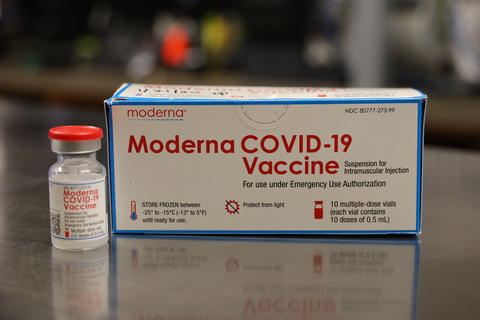Odessa Regional Medical Center Receives 400 COVID-19 Vaccines

Odessa Regional Medical Center received 400 doses of the Moderna vaccine on Monday, December 21 and will begin administering the vaccine to healthcare workers as soon as possible.
Odessa Regional Medical Center began its preparations to safely and efficiently receive, store, distribute and administer the COVID-19 vaccine months ago. These preparations included the planning for cold chain logistics and development of proprietary IT software designed to facilitate scheduling health care personnel to receive vaccines in a physically distanced manner. We have a team of clinicians and subject matter experts who are leading our efforts and ensuring our processes follow all current CDC and FDA guidelines.
The Moderna vaccine (mRNA-1273) was granted Emergency Use Authorization (EUA) by the U.S. Food and Drug Administration’s vaccine advisory committee on December 17, 2020. EUA allows for the use of medical countermeasures, including vaccines, during public health emergencies, such as the current COVID-19 pandemic. Under an EUA, FDA may allow the use of unapproved medical products, or unapproved uses of approved medical products in an emergency to diagnose, treat, or prevent serious or life-threatening diseases or conditions when certain statutory criteria have been met, including that there are no adequate, approved, and available alternatives.
Similar to the Pfizer vaccine, Moderna includes a 2-dose schedule taken approximately four weeks apart. The Moderna vaccines proved to be approximately 95% effective in preventing COVID-19 in its vaccine trial of 30,000 individuals in 89 different clinical sites covering 32 U.S. States. According to the CDC, Messenger RNA (mRNA) vaccines carry genetic material that teaches our cells how to make a harmless piece of “spike protein,” which is found on the surface of the SARS-CoV-2 virus. These do not affect our DNA and cannot give the vaccine recipient COVID-19, though side reported side effects include fever, headache and muscle aches. Other mRNA vaccines have been studied for influenza, Zika, rabies, and cytomegalovirus (CMV).
